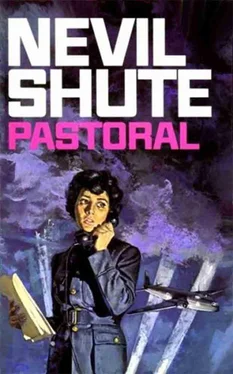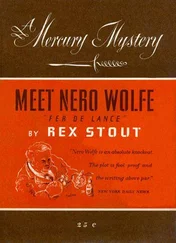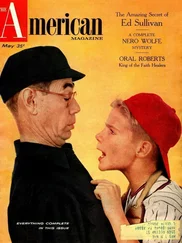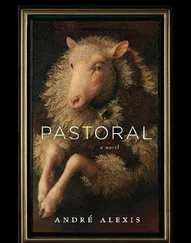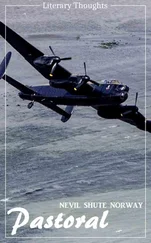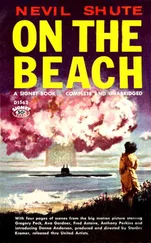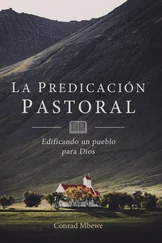Nevil Shute Norway - Pastoral
Здесь есть возможность читать онлайн «Nevil Shute Norway - Pastoral» — ознакомительный отрывок электронной книги совершенно бесплатно, а после прочтения отрывка купить полную версию. В некоторых случаях можно слушать аудио, скачать через торрент в формате fb2 и присутствует краткое содержание. Жанр: unrecognised, на английском языке. Описание произведения, (предисловие) а так же отзывы посетителей доступны на портале библиотеки ЛибКат.
- Название:Pastoral
- Автор:
- Жанр:
- Год:неизвестен
- ISBN:нет данных
- Рейтинг книги:3 / 5. Голосов: 1
-
Избранное:Добавить в избранное
- Отзывы:
-
Ваша оценка:
- 60
- 1
- 2
- 3
- 4
- 5
Pastoral: краткое содержание, описание и аннотация
Предлагаем к чтению аннотацию, описание, краткое содержание или предисловие (зависит от того, что написал сам автор книги «Pastoral»). Если вы не нашли необходимую информацию о книге — напишите в комментариях, мы постараемся отыскать её.
Pastoral — читать онлайн ознакомительный отрывок
Ниже представлен текст книги, разбитый по страницам. Система сохранения места последней прочитанной страницы, позволяет с удобством читать онлайн бесплатно книгу «Pastoral», без необходимости каждый раз заново искать на чём Вы остановились. Поставьте закладку, и сможете в любой момент перейти на страницу, на которой закончили чтение.
Интервал:
Закладка:
He drifted into reverie. G.L. . . . Gertrude Lucy? He took up his fountain-pen again and wrote:
I like being on this station more and more; there are some awfully nice people here. Has Bill got his second pip yet? All my love to Daddy and to you, darling.
Peter.
It exactly filled the double-page, which was his statutory length. He read it through and put it in the envelope, and took it downstairs to the post.
He rang up Ellison and confirmed their meeting in the morning; then he retired into the ante-room with a can of beer. He was called to the telephone five minutes before dinner.
‘Marshall speaking,’ he said. ‘Who’s that?’
‘Sergeant Phillips here, sir. I don’t think that Section Officer can be the one you meant. What did you say her name was? The one that was the sister of the chap you knew?’
Damn it, what had he said? Cynthia? Sylvia? What on earth was it?
‘Sylvia,’ he said. ‘It was just a thought I had, that it might be the same. What’s this one called?’
‘You said the name was Sheila this morning, Cap. I suppose he had two sisters in the WAAFs. But it’s not the same family at all.’
Marshall said very slowly and emphatically: ‘What—is—this—one—called?’
‘Gervase, Cap. Uncommon sort of name.’ He spelled it out. ‘Gervase Laura. Did your friends live in Thirsk?’
Marshall said: ‘No, they lived near—er—Reading.’
‘Can’t be the same, Cap. This one comes from Thirsk in the North Riding.’
‘Oh well—thanks.’
‘Okay.’
Marshall put down the receiver, conscious that he had had his leg pulled by the sergeant. Still he had got the information that he wanted.
He went to bed early that night, having thoughtfully secured a packet of sandwiches from the kitchen. He ate these as he was dressing in the middle of the night. At ten minutes to four he was riding out of the station on his bicycle, yawning and rather cold, and wondering if it was really worth it.
He met Mr Ellison, a dim shadow with a bicycle, in Hartley market as they had arranged. ‘Couple of bloody fools, we are,’ said Mr Ellison. ‘This isn’t worth ten bob of anybody’s money. Let’s get going.’
‘How far?’
‘Seven or eight miles. Kingslake Woods, over by Chipping Hinton.’
They rode off down the main road leading north. The sky was practically clear; a half-moon was rising, making it light enough to see the detail of the countryside. They rode on steadily for nearly an hour, growing warm with the exertion. In the end Ellison slowed down.
‘Steady a moment,’ he said. ‘There’s a gate just here somewhere.’
They found the gate and left their bicycles inside it, and went on up a muddy track that wound slowly uphill through the woods. The leafless branches made a fine tracery over their heads, screening the white clouds drifting past the moon. There was little wind; the woods were very quiet. From time to time a rabbit shot away before them; once an owl swooped low over their heads with a great whirr of wings.
Ellison led on steadily for a quarter of an hour or more. Once Marshall asked: ‘How in hell do you know where to go?’
The motor salesman said: ‘I came here last month, that time when we were shooting foxes. Then old Jim Bullen brought me here again to see a badger, because I told him that I’d never seen one.’ He paused, and then he said: ‘They’re a bit scarce where I come from, around Great Portland Street.’
The pilot nodded. ‘There aren’t so many down in Holborn, where I used to work.’
In the end they paused on the edge of a clearing, full of dappled moonlit shadows. Ellison whispered. ‘This is the place—keep damn quiet now. If we have any luck we’ll see the badger here.’ He pointed across the clearing to a little earthy cliff. ‘There’s an earth there. . . . See? And there’s another one about a hundred yards along. . . . There.’
Marshall strained his eyes, but could see nothing but the dappled moonlight. The wind was blowing to them from the earth; it was as good a place to watch as any. ‘Take your word for it,’ he whispered. ‘How long shall we have to wait?’
Ellison said: ‘It must be close on six. We’ll give it an hour before we call it off.’
‘We’ll be bloody cold by then.’
They settled down upon a log to wait and watch, motionless. The silvery radiance that filled the clearing, ebbing and flowing with the passing clouds, was nothing novel to Marshall; he knew moonlight very well. For many hours he had sat patterned in black and white within the moonlit cockpit, uneasy and vigilant for night fighters; home to him was the appearance of a moonlit landfall seen through gaps of cloud, faint, silver, ethereal cliffs and fields. He had seen so much moon in the last fifteen months that he had absorbed a little of its serenity, perhaps. At the beginning of his career as a bombing pilot he had been confused and distressed and bewildered by the casualties, by the deaths of friends that he had known and played with in their leisure hours. The casualties had less effect upon him now; they were things that happened, that must be accepted as they came. One day he would probably go too; the thought did not distress him very much. Life in the RAF was real, and exciting, and great fun—better by far than the life he had known in his insurance office before the war. Everything had to end some time. It was undesirable to be killed, but it was also undesirable to go creeping back into the office when the war was over.
In the quiet glamour of the night his mind was full of Section Officer Robertson. Gervase, Gervase Laura Robertson. Thinking of her, he discovered his own mind. She was attractive, and neat, and pretty as a picture; she was a friendly girl and, he thought, rather an unhappy one. He wished very much that he knew what it was that worried her, whether it was some prune that she had left at her last station. He liked her very much indeed; he knew himself already to be half in love with her. Quite suddenly he realized that much of the fun of this attempt to see a badger and a fox within a quarter of an hour would be in telling her about it.
A stave out of the theme song of a picture came into his mind and set him smiling at his own foolishness—
Moonlight becomes you, it goes with your hair—
You certainly know the right things to wear . . .
He could not remember any more words, but the tune stayed with him, and Fred Astaire. For him the moonlit glade was filled with music as he sat there waiting for the badger. Gervase, he thought, was pretty enough in uniform, but in civilian clothes—say in a cotton summer frock—she must look wonderful.
Forty minutes passed, and his only knowledge of the drift of time lay in his chilling feet and legs. Then Ellison pressed him very gently on the arm, and pointed stealthily to the far hedge.
The pilot followed his direction. It was a true bill; some animal was there. It trotted along the hedge, seen dimly in the variable light; then it came out into the glade making towards the earth. It was greyish-black in colour with a long black-and-white face that it carried close down to the ground. It went purposefully and fairly fast, pausing for an instant now and then to snuffle at some delicacy of the woods, then going on.
Near the entrance to the earth it paused and froze, warned by some sixth sense. Ellison stood up, clumsy with the cold, making a slight noise of clothes and crushing leaves and twigs. ‘Badger,’ he said. ‘See it?’
There was a quick scramble on the far side of the glade, and it was gone. Marshall stood up stiffly. ‘I’ll give you that one,’ he agreed. ‘Damn good show.’ Then, remembering their bet, he peered down at his wristwatch in the dim white light. ‘Six twenty-three,’ he said. ‘Now—fox before six thirty-eight.’
Читать дальшеИнтервал:
Закладка:
Похожие книги на «Pastoral»
Представляем Вашему вниманию похожие книги на «Pastoral» списком для выбора. Мы отобрали схожую по названию и смыслу литературу в надежде предоставить читателям больше вариантов отыскать новые, интересные, ещё непрочитанные произведения.
Обсуждение, отзывы о книге «Pastoral» и просто собственные мнения читателей. Оставьте ваши комментарии, напишите, что Вы думаете о произведении, его смысле или главных героях. Укажите что конкретно понравилось, а что нет, и почему Вы так считаете.
